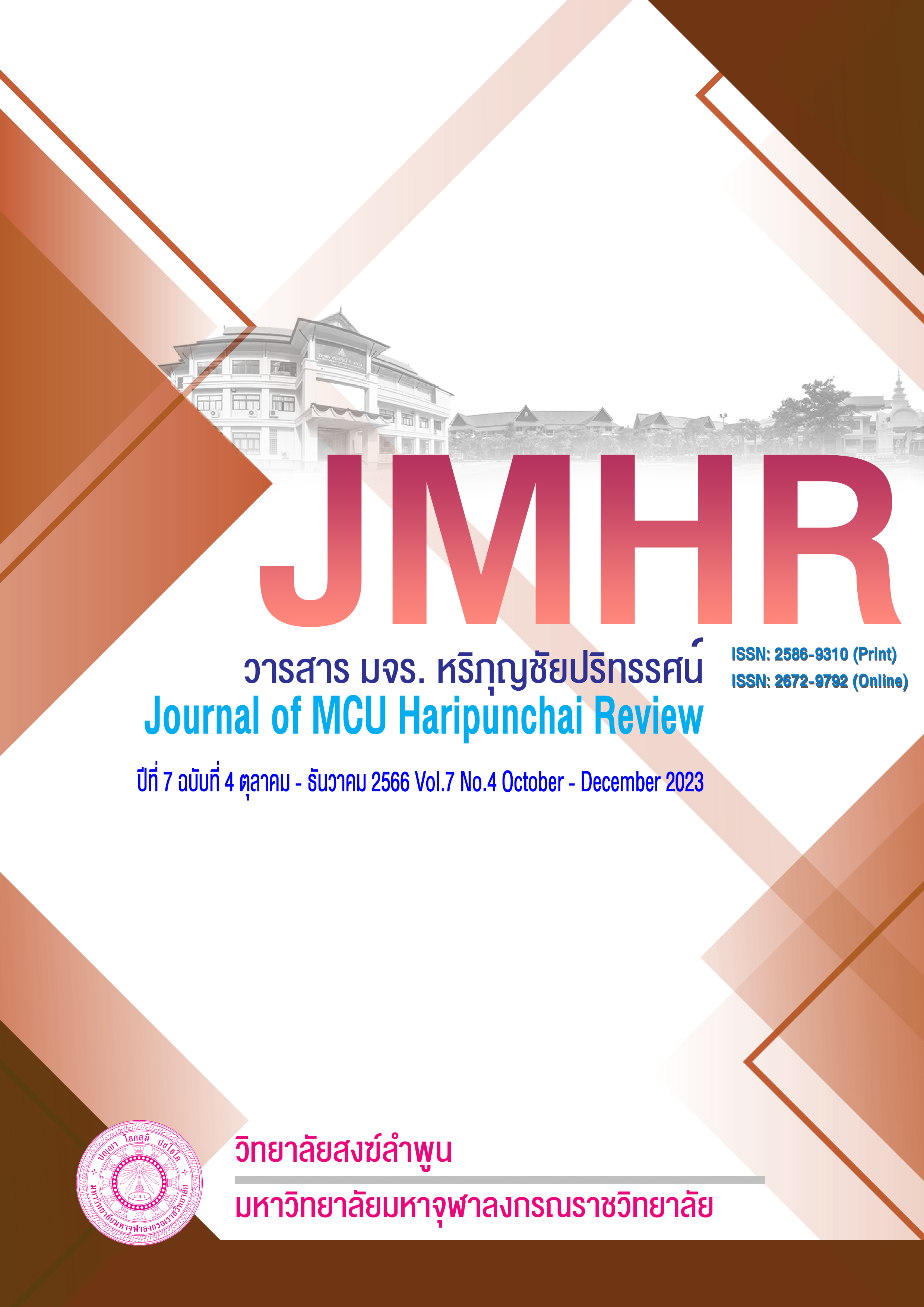The Social Movement Rights in the Community of Mae Tha Sub-district, Mae On District, Chiang Mai Province
Main Article Content
Abstract
This research aims to study 1) the cause and problems related to community rights in resource management 2) Social movements demanding community rights in natural resource management and 3) The approach to natural resource management in Mae Tha subdistrict, Mae On district, Chiang Mai province. Qualitative research model
Existing primary and secondary data were mainly collected and the interview was used as a Snowball Sampling.The researcher collected data using in-depth analysis of 38 people in 4 groups : 1. Leader group 2. Local leadership group 3. Village leaders
4. A group of local knowledge. The data is analyzed to identify the causes and problems, social movements demanding resource management methods at the local level and approaches natural resource management. The study presents descriptive data gathered from interviews and documentary sources, which are combined and analyzed qualitatively.
Research findings are as follows:
1) The cause of the demand for community rights in natural resource management comes from the government's allowance for logging concessions in the forest area of Mae Tha subdistrict for over 50 years. Illegal logging and encroachment have resulted in the degradation of the forest area, and the preparation for declaring the area of Mae Tha Subdistrict as Mae Takrai National Park has caused issues regarding the community's rights.
2) Social movement to claim the right of the community to manage resources due to the demand of the community for forest to belong to the community. The movement has groups and networks to coordinate cooperation and create recognition of the government's resource management system.
3) The guidelines for resource management in Mae Tha Tambon are to Caring for local resources for the people who live with the forest, forest management, and to take advantage of the resources in the sub-district.
Article Details

This work is licensed under a Creative Commons Attribution-NonCommercial-NoDerivatives 4.0 International License.
References
ชล บุนนาค. (2555). “แนวคิดว่าด้วยการจัดการทรัพยากรร่วม : ประสบการณ์จากต่างประเทศและแนวคิดในประเทศไทย” ใน ปกป้อง จันวิทย์ (บ.ก.), ชุดหนังสือการสำรวจองค์ความรู้เพื่อการปฏิรูปประเทศไทย. นนทบุรี : คณะทำงานเครือข่ายวิชาการเพื่อการปฏิรูป คณะกรรมการสมัชชาปฏิรูป.
ชลธิรา สัตยาวัฒนา (2546). สิทธิชุมชนท้องถิ่น จากจารีตประเพณีสู่สถานการณ์ปัจจุบัน : การศึกษาเพื่อแสวงหาแนวทางนโยบายสิทธิชุมชนท้องถิ่นในประเทศไทย. วารสารวิชาการสิทธิมนุษยชนสำนักงานคณะกรรมการสิทธิมนุษยชนแห่งชาติ.
ธนวัฒน์ ปินตา . (2556) . การเคลื่อนไหวทางสังคมในการคัดค้านโครงการก่อสร้างและติดตั้งระบบผลิตพลังงานขยะในเขตเทศบาลตำบลบ้านกลาง อำเภอเมืองลำพูน. (รัฐศาสตรมหาบัณฑิต). มหาวิทยาลัยเชียงใหม่, เชียงใหม่.
ประภาส ปิ่นตบแต่ง. (2541). การเมืองบนท้องถนน 99 วัน สมัชชาคนจนและประวัติศาสตร์ การเดินขบวน ชุมชนประท้วงในสังคมไทย. กรุงเทพฯ : ศูนย์วิจัยและผลิตตำรา มหาวิทยาลัยเกริก.
ยศ สันตสมบัติ. (2546 ). “สิทธิชุมชน พัฒนาการ และการปรับกระบวนทัศน์ทางมานุษยวิทยา”. ใน ชลธิรา สัตยาวัฒนา (บ.ก.), พลวัตและความยืดหยุ่นของสังคมชาวนา : เศรษฐกิจชุมชนภาคเหนือและการปรับกระบวนทัศน์ว่าด้วยชุมชนในประเทศโลกที่สาม. กรุงเทพฯ : โรงพิมพ์ แปลนด์ พริ้นติ้ง.
รุ่งทิวา หนักเพ็ชร์. (2556). การเคลื่อนไหวทางการเมืองของกลุ่มอนุรักษ์สิ่งแวดล้อมในจังหวัดน่านต่อโครงการโรงไฟฟ้าลิกไนต์หงสา. (รัฐศาสตรมหาบัณฑิต). มหาวิทยาลัยเชียงใหม่, เชียงใหม่.
สัญญา เคณาภูมิ. (2559). การสร้างกลยุทธ์จากฐานการวิจัยทางการบริหารจัดการ. ” วารสารมนุษย์ศาสตร์และสังคมศาสตร์ มหาวิทยาลัยมหาสารคาม. ปีที่ 7 (ฉบับที่ 1).
อิทธิพล ศรีเสาวลักษณ์ และคณะ. (2550). โครงการศึกษาระบบสิทธิในที่ดินของชุมชนที่เหมาะสม. สำนักงานกองทนสนับสนุนการวิจัย.


